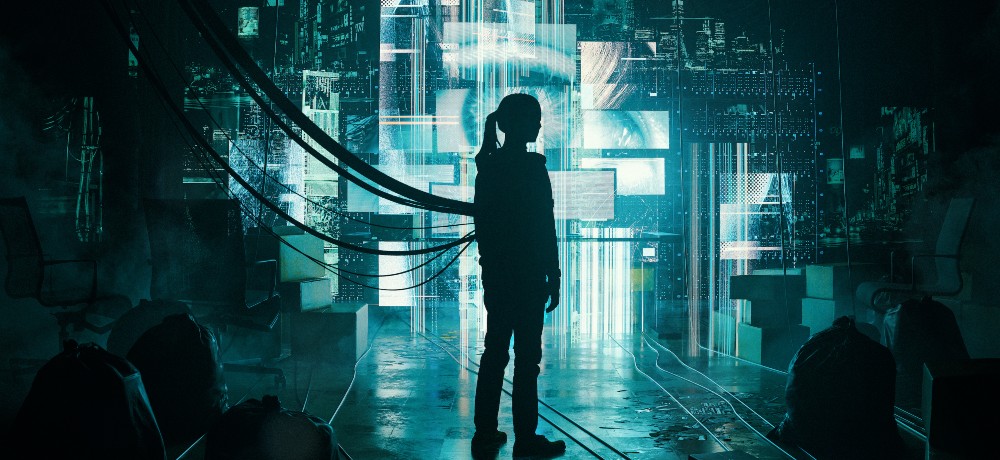






Artificial Intelligence, or AI, uses machines, especially computer systems, to simulate human intelligence. AI is used to create extremely lifelike interactions online and in video games. Ethical issues sometimes arise with the use of AI because of concerns about informed consent to use data, safety and transparency, and data privacy. But what if AI could be used to track down criminals like child predators? Writer/director Franklin Ritch explores the use of AI to pursue child predators online and the ethical and moral questions that may come up in The Artifice Girl, which had its World Premiere at this year’s Fantasia International Film Festival and was produced by Paper Street Pictures. With The Artifice Girl, Ritch has created an impressive debut feature film which presents an AI that has been developed to hunt pedophiles online. When the creator of the AI teams up with Special Agents to capture child predators and the AI begins to exhibit human emotions, The Artifice Girl becomes a fascinating and thought-provoking discussion exploring the limitations of the technology and at what point the AI might be considered human.
Special Agent Dena Helms, played by Sinda Nichols, and her partner Amos (David Girard) have been investigating child predators who use online chat rooms to stalk and abuse their victims for years. When they encounter a young girl named Cherry online, who participates in several chat rooms with known predators, they bring in a man named Gareth, played by director Franklin Ritch, for questioning because they are worried about the girl’s safety. After intense questioning by Special Agent Helms, who has a personal connection to these cases, Gareth reluctantly confesses that Cherry is not a real girl, but an AI he created to find child predators. Gareth has been acting as a vigilante by locating pedophiles and sending their information anonymously to the agents to help them capture the criminals. The fact that he named the AI Cherry is evocative of the campy 1988 Sci-Fi film Cherry 2000, which tells the story of a man who falls in love with a very lifelike robot.
Gareth has a personal reason for creating Cherry and when he hesitantly agrees to team up with the Special Agents to track down predators online and Cherry continues to expand her learning capabilities, including her ability to exhibit human emotions, the team is confronted with the moral and ethical consequences of continuing to use the AI. Ritch gives an affecting performance as Gareth, a man attempting to cope with trauma and determined to stop as many child predators as he can as The Artifice Girl follows the team over a span of 50 years. Nichols’ portrayal of Agent Helms is powerful, as she tries to deal with her own demons while considering the ramifications of allowing Cherry to become more human over the years. The legendary Lance Henricksen has a small role as elderly Gareth as he reflects on his decisions in life, specifically the ones involving Cherry. The bulk of the film takes place in one location, and this is a story that requires the audience to be patient and one that will hopefully inspire conversation around things like whether AI is capable of experiencing human emotion and the safety and privacy concerns of using this technology.
While this is an overall enjoyable and engaging film, the final act does leave the viewer with more questions than answers, but this is definitely a film you will be thinking about for a while. Ultimately, The Artifice Girl is a remarkably poignant debut feature film that boasts an excellent cast and intriguing concepts that will hopefully spark not only thought, but conversation.
Movie Score: 3.5/5